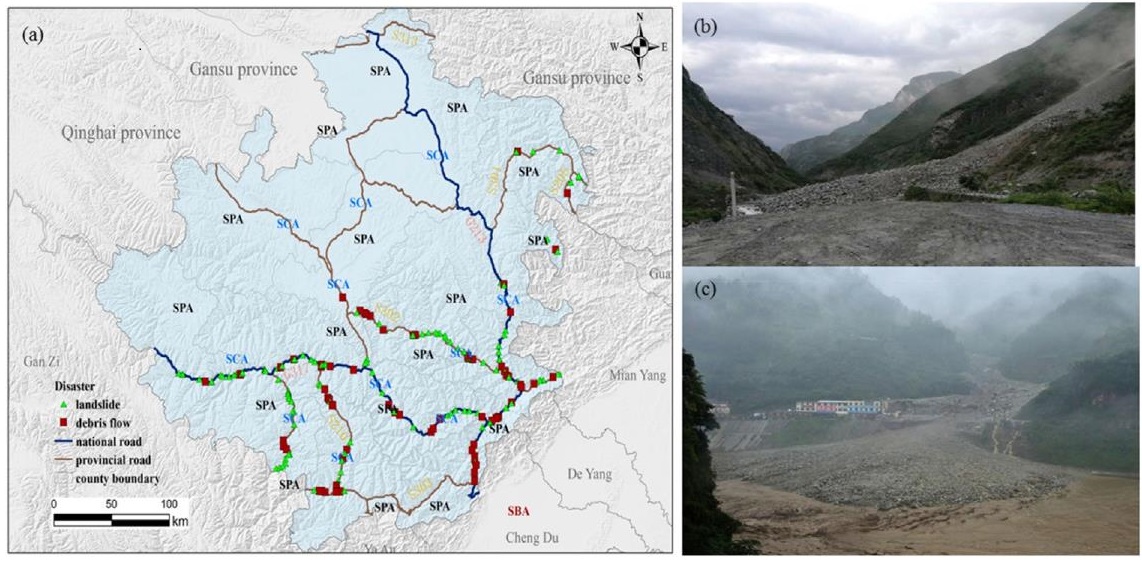Cultural Ecosystem Services (CES) are important services provided by mountain ecosystems and are of great significance to the development of mountain economy and environmental protection. Transportation is an important factor in the utilization of CES. Geological disasters such as landslides and debris flows have a direct impact on the accessibility of CES in mountain areas. The current research on the relationship between geological disasters and CES in mountain areas is still lack.
Researchers from IMHE as Associate Prof. FU Bin and Prof. XU Pei et al carried out a case study in Aba Prefecture, China, which is rich in CES resources. Based on the framework of ecosystem service supply and demand, they used disaster density, traffic time and blocking time as indicators to evaluate the spatial pattern and accessibility of CES. They found that high-frequency geological disasters significantly reduced the accessibility of CES, and the overlapping of disaster events and utilization time has a significant impact on the accessibility of CES. Based on the above results, the research team suggest to strengthen the comprehensive research and management of geological disasters, transportation and tourism, which can help for tourism development, transportation construction and environmental protection in disaster-prone area.
This research was supported by the Second Tibetan Plateau Scientific Expedition and Research Program (STEP, Grant No. 2019QZKK0307) and the Natural Science Foundation (No. 41371539). The study entitled Critical areas linking the supply and demand of cultural ecosystem services: Accessibility and geological disasters has been punlished online in Global Ecology and Conservation.

Figure 1. CES supply, demand and connection area, and its spatial relationship with geological disasters(Image by FU Bin).
Contact:
Associate Prof. FU Bin
Institute of Mountain Hazards and Environment, Chinese Academy of Sciences
Chengdu, Sichuan, 610041, China
Tel: 86-13540240863
E-mail: fubin@imde.ac.cn
